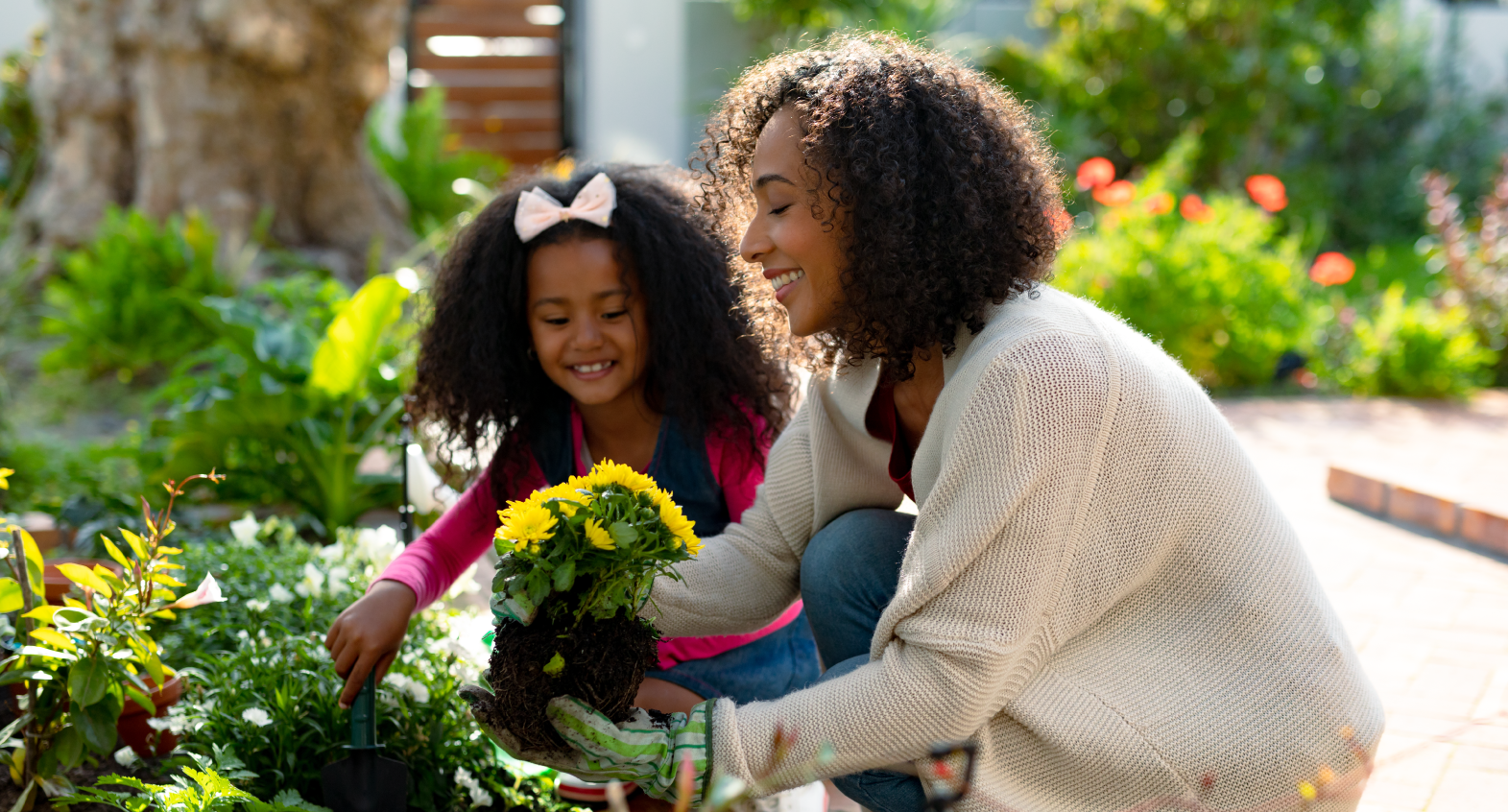Spring gardening is just around the corner, or perhaps already here, depending on where you live. We love being able to witness the growth cycle of flowers, vegetables, berries, and all the other colorful plants that start sprouting up this time of year. Getting in touch with the earth is great for our kids and adults, teaching all kinds of life skills that help give our little ones a healthy headstart. Ready to sink your hands in the dirt?

Benefits of gardening
Motor skills and mobility
From digging holes, scooping dirt, carefully handling starter plants, and handling the hose—kids will be able to work on fine and gross motor skills. Getting close to the earth also means that they’ll be squatting and standing, working on their hands and knees, and carrying supplies.
Reasoning and science skills
Learning how to grow a garden means kids get to work on their memory, like watering the garden regularly. As you and your little one work together, they will learn about the natural growth cycle of plants from seed to harvest, and how inputs (like water and light) can affect various plants in different ways.
Understanding how food is made
"The supermarket” may be one answer when we ask kids “where does our food come from?” And they’re not wrong! But going back to the roots means that the younger generation will have a deeper understanding of where our nutrients comes from, and the dedication and resources that is needed to produce what we eat—it doesn’t just appear out of nowhere!
Creating healthy habits from the ground up
Planting fruits and veggies gives kiddos a healthy headstart with their eating habits. Planting, harvesting, and then enjoying the fruits and veggies from the garden produces an inseparable association between what we eat and how it is made. The sense of accomplishment that kids get from growing their own food can result in them having a deeper appreciation and taste for fruits and veggies.
Gratification, success, and failure
We also want to call this “the myth of the green thumb.” The truth? Gardening is a process of trial and error; plants are living things and are sensitive to their environment. By gardening with our little sprouts, they're able to learn about the gratification of seeing the first blossom, the success of tasting their first homegrown strawberry, and the perseverance of trying again when the tomatoes just don’t work out. It’s not always going to be perfect, but when it works out, watching them enjoy the fruits of their hard work is something to behold!
Appreciation for the earth
Everything comes from the earth. And being able to spend time outside, with the breeze in their hair and the golden rays of sun shining, sinking their sweet hands into the dirt helps them come closer to the earth and all that it has to offer. Spending time outdoors is known to boost the mood, relieve stress, and connect with the earth that supports all life.

Sprouting for success
We get it—gardening is literally dirty, takes time and dedication, and is not a guaranteed success. Not everything needs to be perfect, and that’s the mindset that’s important to have when starting a garden! Not an expert gardener? That's ok! You and your little one can learn together, creating even more opportunities to bond and create long lasting memories.

Planting for your space
No, you don’t need a giant yard with tons of space for raised garden beds! You can still get the benefits of gardening from an apartment. One way would be to use window planters or planters for your porch! You could try a patio tomato plant or a strawberry planter. Need something even smaller? What about planting some basil or a window herb garden! Look up Back to the Roots from some awesome small growing kits made just for kids.
Another idea is to look into community gardens in your area and see how you and your family can get involved with your neighborhood and work in the dirt—now that’s a win-win!

